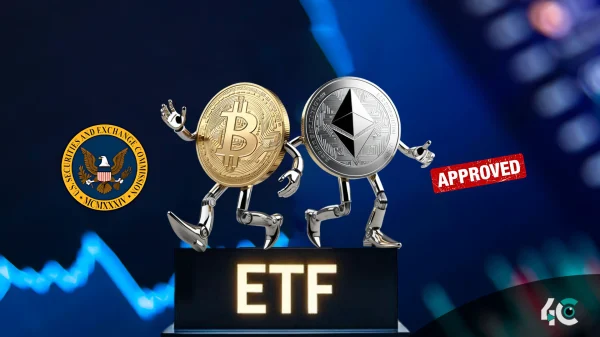Google is set to implement new cryptocurrency advertising policies across Europe beginning April 23, 2025. Under the EU’s Markets in Crypto-Assets (MiCA) regulation, advertisers promoting crypto exchanges and wallet services must obtain a Crypto Asset Service Provider (CASP) license and complete Google’s certification process. This move aims to enhance regulatory compliance and protect consumers in the digital asset space.
Google Tightens Crypto Advertising Policies in Europe
Google is rolling out a significant update to its cryptocurrency advertising policies in Europe, set to take effect on April 23. Under the new rules, only crypto exchanges and wallet services that hold licenses under the EU’s Markets in Crypto-Assets (MiCA) framework or equivalent national regulations will be permitted to advertise on Google platforms.
This policy aligns with the EU’s broader efforts to promote transparency and protect investors in the rapidly evolving crypto space. Advertisers must not only secure a valid MiCA or CASP license but also obtain certification directly from Google. Additionally, they must comply with country-specific regulations, adding another layer of complexity for digital asset promoters operating across multiple jurisdictions.
The updated rules will apply uniformly across all 27 EU member states, including key markets like Germany, France, Spain, and Italy. Google has assured advertisers that non-compliant accounts will receive a seven-day warning before any suspension, giving businesses time to adjust. However, the overall policy marks a substantial shift in how crypto firms can engage with European audiences through one of the world’s largest advertising platforms.
The revised rules will be the same for all 27 EU member countries like Germany, France, Spain, and Italy. Google stated that an account that fails to comply with the rules will get a warning for seven days before being suspended. The move will give businesses ample time to make necessary adjustments. Nonetheless, the advertising policy constitutes a significant change in the ability of crypto businesses to connect with European audiences via one of the largest ad services in the world.
Challenges for Smaller Crypto Firms
Big names like Binance and Coinbase likely already have the measures in place, but smaller and newer crypto firms may find it difficult to meet the demands. Getting a MiCA license or similar can be costly and time-consuming, with some deadlines in late 2025.
These barriers may limit startups’ and small businesses’ access to Google’s ad network and scaling. The new rules are worrisome as they will help only well-funded and bigger players in the crypto space and not start-ups.
Mixed Reactions from Industry Experts
According to an industry expert, opinions on Google’s revised rule differ. Some see the change as a method to reduce scams and create a safer environment for investors. Google’s goal is to protect people from scams and frauds, which is why they will only accept companies that hold a license and comply with regulations.
Conversely, some individuals worry that stricter regulations could stifle innovation and establish an inequitable competitive environment. Smaller businesses and new companies could now miss out on key marketing, leaving the market to the big boys.
A New Era for Crypto Advertising
Crypto firms will need to change their online advertisements in Europe, as new rules will impact their ad copies. To appear on Google’s platforms, such as YouTube or Search, they must adhere to regulations like MiCA.
We will closely monitor the companies as they obtain licenses and adjust accordingly. These modifications will have a lasting impact on innovative concepts and decisions, even though their goal is to safeguard investors and stop fraud.
Conclusion
Google’s decision to tighten crypto ad rules in Europe reflects the growing emphasis on regulation and investor safety in the crypto industry. Google is demanding compliance with MiCA or equivalent national laws, which serves to fight against fraud and unlicensed players in the crypto space.
Still, it poses problems, especially for smaller companies, which may find it difficult to comply with these requirements. The crypto industry will closely study the equilibrium between rules and innovation as it adapts to this new age of advertising. Whether it’s a positive or negative development, the action highlights businesses’ vulnerabilities due to misunderstandings about cryptocurrencies.














































